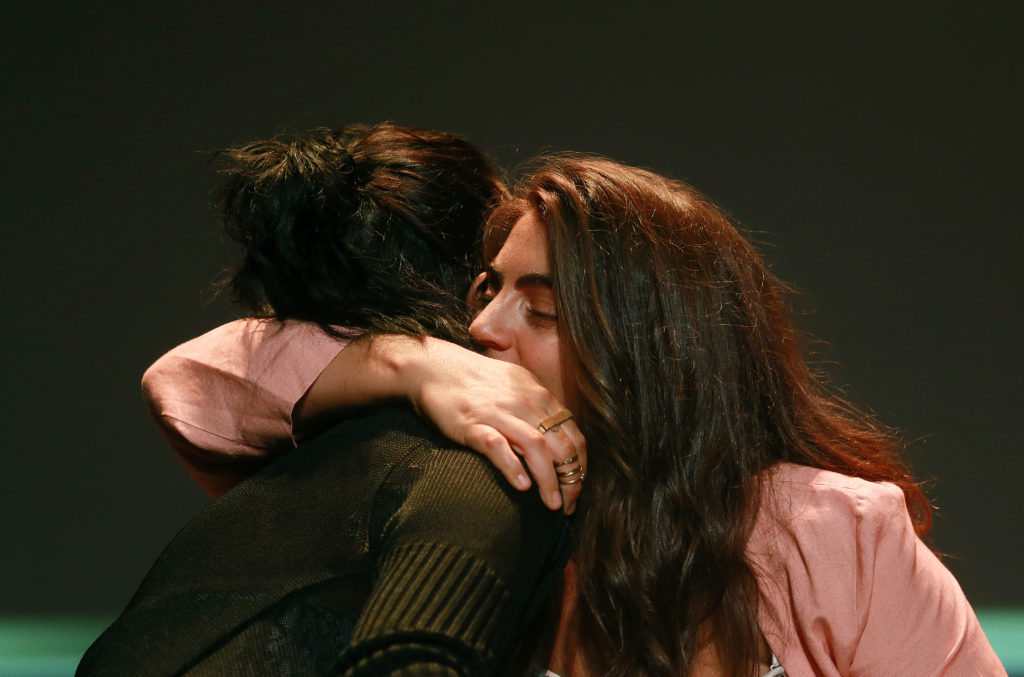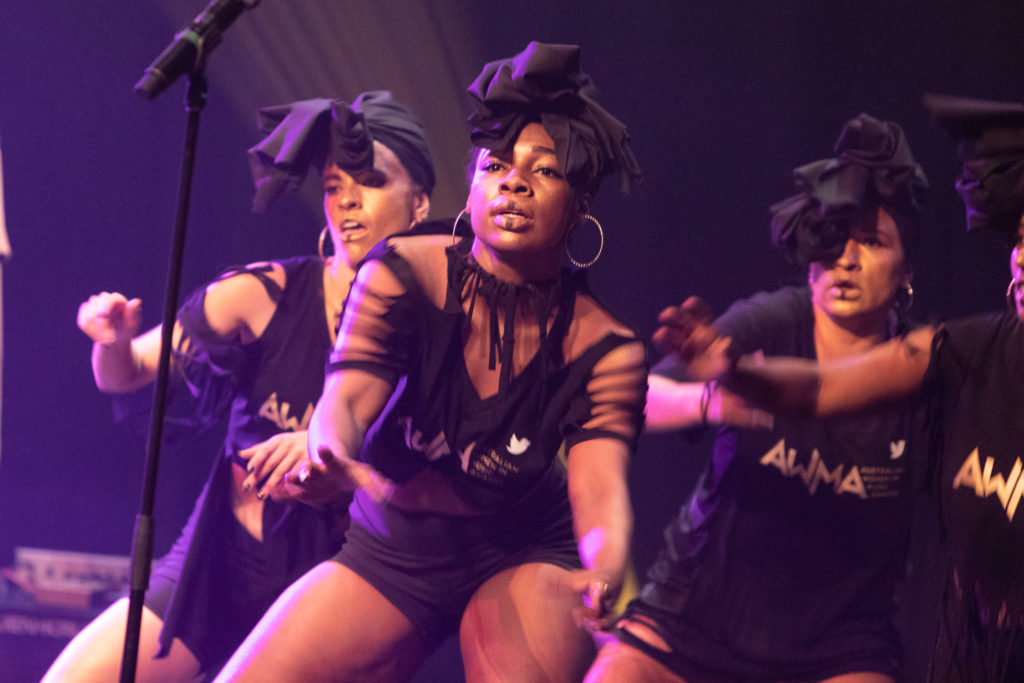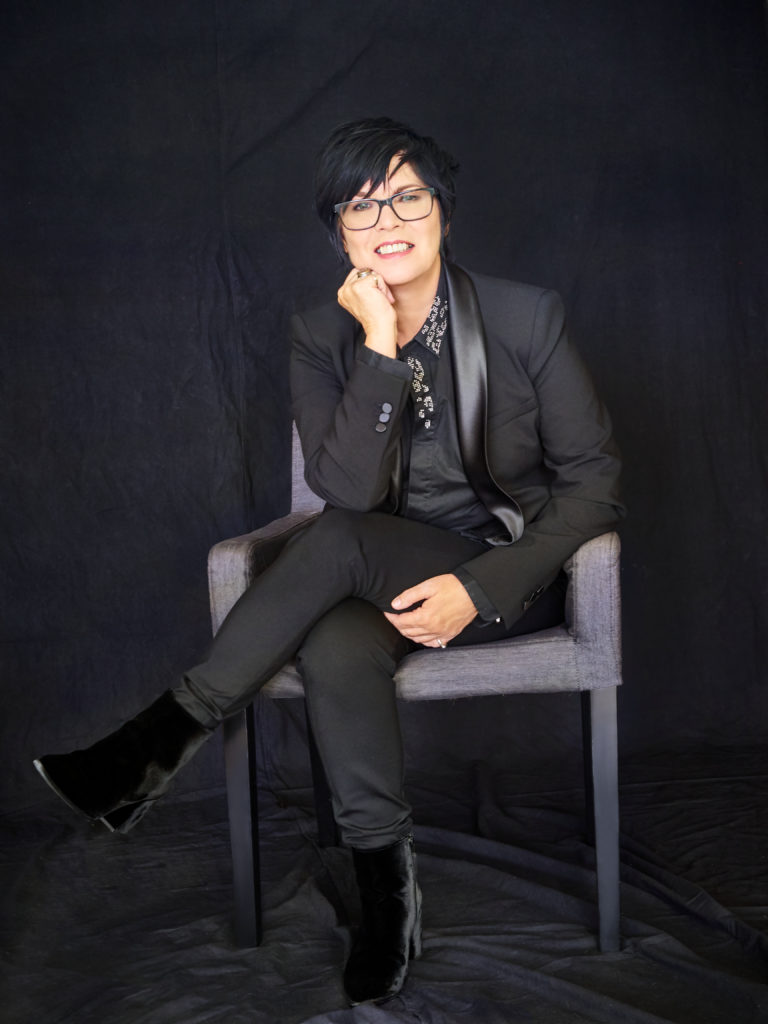Australian Women In Music Awards
The Australian Women in Music Awards is making major inroads in representing and acknowledging the dedication and achievements of women working in the music industry. We chat to founding executive director Vicki Gordon about building on the success of last year’s event and the new inclusions that support networking and education. For the second year in a row, Vicki is “very excited… to be able to keep this train moving forward.”
AWMA is now calling for nominations for each of the 15 award categories and invites you to attend the second-ever celebration of women in the Australian music industry on October 8 and 9 at the Brisbane Powerhouse 2019.

Did you expect AWMA to have so much power from the get go?
It’s hard to say, ‘did I expect it?’ When you’ve been trying to create change for such a long time, which I have, and you suddenly find yourself in a world that has changed, especially since #MeToo, you can’t help but have high hopes. Change will only happen when the timing is right and the people are ready.
Do you think having high hopes and that kind of goal setting makes it more successful and propels the movement?
You hear several people wanting to have low expectations, so they don’t disappoint themselves.
I think it’s important to have all those things. You can still high hopes and have very realistic expectations. I had high hopes because I knew how much support we had out there.
When you’re building a movement from the ground up you have to have a lot of tenacity, resilience and courage and you have to be prepared to take risks. People will always push back at you, this is inevitable when you’re creating change. I’ve been in the business long enough to be realistic. The work I have done in the area of addressing gender and cultural equity has not come easily, nothing worth doing ever is!
Do you think the support has just been from the QLD government and Canon or broader support?
We have secured extensive industry and community support combined with enormous support from numerous sponsors all of whom are committed to gender equity. Obviously sponsors are vital, because without financial support, you can’t make things happen. In our inaugural year we also had support from extraordinary artists like Deb Conway, Katie Noonan, Little Patti, Jenny Morris, Izzi Manfredi, Christine Anu, Renee Geyer, Kate Ceberano and others. Support from the media, from state music associations and unions, from both men and women across the sector has been phenomenal.
Now that people are able to see the work and properly visualise the event, how has that helped involve more people and broaden the support you receive?
I think it’s an easier conversation to have now. In the first few years of lobbying, it can be difficult to convince people to believe in your vision. Initially, I was very lucky to have the support of the QLD Government and Canon, they had no doubt about the importance of the work we are doing and they believed in my capacity to deliver. That’s not easy, because you’re just one small individual trying to move mountains! I think AWMA is a conversation that people are more relaxed and comfortable to have now because we’ve delivered a highly successful inaugural event, the sky hasn’t fallen in and people are comfortable about our leadership in this area. But, we shouldn’t forget the other women and men who have also been fighting the good fight for a very long time as well, everything helps. Ultimately, AWMA has done a great job at bringing everyone together.
Would you say that having this event and giving a positive lens to feminism is what has made people receptive?
The music industry is a community made up of people from different cultural backgrounds, sexuality and gender. AWMA is trying to address that and bring it all together. There is also something very positive about an awards ceremony because it is a celebration. We’ve created a vehicle to recognise the contributions of women in a two-day event with forums, conversation, performance opportunities and networking. Bringing people together in that context is why AWMA has been successful… there is no point complaining if your’e not prepared to agitate to create positive change. People are hungry for connection, for belonging, for support and empowerment. AWMA is an inclusive community of artists and music practitioners who are all committed to that change.
Can you talk about introducing new awards this year?
We had an award category last year which we hoped would support music journalists. When we looked at it again, we felt we needed a separate award to recognise women who are being courageous in their impact and innovative reporting. The Music Journalism Award is really exciting because we need to focus on truth telling across the whole scope of journalism.
The beauty of establishing different award categories is that each new category assists us to create a greater conversation around that skill set. For example, in the technical/production categories, an area that women love and excel in, women are hard to find. We can now bring a conversation to the table about why it is so hard for women working in that area.
The Image Making Award is also just as important. We wanted to look at makeup artists and stylists who are working to change the face of music visually to break down gender, racial and social-cultural stereotypes. That’s important because women have a lot of challenges about body image which is intrinsically tied to self-esteem. We need to be talking about these things with one another and recognise the people making a difference in that space.

Do you think you’ve seen society’s awareness of women’s inequality is headed in a positive direction because of AWMA?
AWMA is a great example of how to raise challenging issues in a positive way. AWMA is feminism in action. As a result of the AWMA’s, we saw four women appointed to the ARIA board earlier this year; we have seen a much broader conversation about gender across the sector and more men are engaging on this issue. I recently sat on the Music Australia roundtable and there were some really thought-provoking conversations about leadership from all areas of industry, there is a cultural shift happening. These things take time, many people have contributed to this change, there are many more challenges ahead.
Can you talk about the new forum series being introduced and why education is so vital to igniting change?
The forums are really important because we’re not just focusing on the music industry. The ‘Visibility in Hip Hop’ workshop is about why Hip Hop has predominantly given voice to men and why it is so difficult for women to find their rightful place in the Hip Hop music scene. That’s really important, particularly for a lot of First Nations women who are doing great work in Hip Hop.
The ‘Art of Rebellion – Intersection of Music and Politics’ forum looks at who’s voices are being heard in the music industry. We want to look at the voices that are completely and fundamentally silenced as well. By raising these kinds of topics, couched within the context of music, we enable a platform to share broader ideas which people are hungry to discuss.
The ‘Image Making and Changing Face of Music’ is an important panel because we need to ensure we can talk about these things together and counter objectifying representations of women in the industry. Feedback from last year’s forum is that people want more of it. The main thing that women are asking for is networking. We need to be connected, women have not traditionally been very good networkers, but I think we’re getting better.
Do you think it’s a confidence thing? As a child, there’s a lot of fearlessness, but as you become more exposed to the world and have people dim your voice, you lose that confidence, which doesn’t make you as strong. Would you say that?
I would. I think women spend their lives working on their self-esteem. Many of us have spent our lives being told we’re not good enough, we’re not smart enough, we’re not pretty enough and when we do display our strengths we are described as being aggressive or angry. The impact of those double standards can be detrimental, especially for marginalised and disadvantaged women, and as we get older, our confidence can also start to diminish.
Women have to work that much harder to believe in themselves. Creative people have to be vulnerable to be the extraordinary artists they are and with that vulnerability can come a lack of confidence and self-belief and when you combine that in the context of the patriarchy, it can be very hard for women to stay strong.
Part of the power of AWMA is to make women feel appreciated in a space that empowers them, in a safe environment that holds them up and loves them, creating an opportunity for all of us to be stronger together as a creative community.

Can you talk about why multi-issue activism is more meaningful and effective than seeing issues in isolation?
I’ve worked with First Nations artists for 25 years. I’ve always been deeply connected to culture and community and I am a gay woman. I can’t live in a world that doesn’t incorporate all of these things because that’s my world. The richness and diversity and the gifts we get from all of these people are enormous, why would we not want to embrace all of that?
The reason people usually see things in isolation is because they come from privileged backgrounds or have been too lazy to see the rest of the world and engage with it. The world is made up of many different people and experiences. My work with First Nations people has allowed me to do work all over this country.
The experience of working with our cherished First Nations people is the richest experience I’ve had in my life and it continues to this day. It is important for people to open their eyes to go back to truth telling and look at the ‘real’ history of Aboriginal Australia.
I think if people are honest with themselves about our history then we can start to move forward. It’s the only way to make a better world. We have to live and share in it together. The music industry is just a small part of that. Historically, the music industry hasn’t been good at sharing its resources and traditionally it hasn’t done culture or gender very well either. The only way we can make a stronger community is to work together. It sounds idealistic, but it’s what the world needs.
AWMA is about creating a platform for all the diverse voices to have a place. It is important because we acknowledge the contributions of women across all areas of industry. We’re not just focusing on singer-songwriters or celebrity. We have a humanitarian focus and we are trying to make a difference by holding up and shining a spotlight on the various aspects of community that have been the least visible and the least heard.
How have you seen in the past year and through your career the impact of these events on motivating and driving women to continue sharing and exploring their creativity in a competitive industry?
There are a lot of great people contributing to change in this space but there’s been nothing like AWMA and nothing I can compare it to. I established the Australian Women’s Rock Institute in the 90’s to improve the status of women across the industry. We had a lot of impact, but it was a difficult time to make change.
If you speak to anybody who attended our inaugural award ceremony last year, it was the most incredible experience. Nothing I could’ve ever pre-empted or imagined… The feeling in the room of love, where women were supporting one another and holding each other up and being acknowledged and recognised; some of them for the first time in their lives was unbelievable. Nothing like this has happened before. I know it’s very much needed… There’s still a lot of work to do, but we’ve created a very strong foundational platform and we’re only going to get stronger.

It really helps women regain their power, not just award winners, but also for the attendees and those who are exposed to the work of AWMA.
There’s a saying, ‘you cannot be what you cannot see’, and for many years, women have been invisible, they haven’t been able to see other women in power positions, in tech and production roles, as music photographers or video makers and as leaders. They haven’t existed… This is an exciting time to be working in the music industry and pushing AWMA forward, it makes women feel proud and they feel they are a part of something special instead of being excluded. It is a very important time to be contributing to the changing face of the Australian Music Industry. Our time has come!
The return of the AWMA’s is stronger than ever this year. Brought to you by the Queensland Government and Canon, the event will feature a high-profile keynote speaker, industry forums and a number of exciting networking events.
To get involved in the work of AWMA, be sure to submit nominations for women bringing their creativity to the music industry here: https://womeninmusicawards.com.au/nominations/
Tickets to the 2019 AWMA’s, to be held at the Brisbane Powerhouse in Queensland are now on sale. Tickets for events, including industry forums, keynote speaker, awards ceremony and concert are available separately or as part of discount packages. Concessions are also available.
Tickets here: https://premier.ticketek.com.au/shows/show.aspx?sh=AWMASHOW19
Further information on womeninmusicawards.com.au